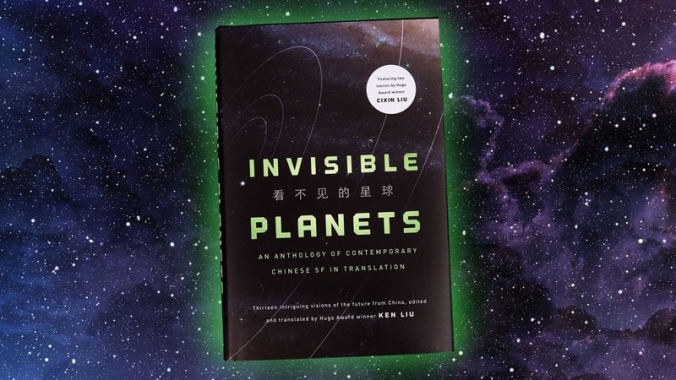The invaluable Invisible Planets introduces the world of Chinese sci-fi

“Some said that outside the borders of the State there were other web sites, but those were only urban legends.”
—Ma Boyong, “The City Of Silence”
“The machines pretty much ran on their own, and there were very few workers. At night, when the workers got together, they felt like the last survivors of some dwindling tribe in the desolate wilderness.”
—Hao Jingfiang, “Folding Beijing”
In his introduction to the new anthology Invisible Planets: Contemporary Chinese Science Fiction In Translation, the sci-fi writer and translator Ken Liu warns the reader against drawing generalizations from the stories selected for the book. To put that in perspective: Invisible Planets isn’t just the first book of its kind since Wu Dingbo and Patrick Murphy’s Science Fiction From China (1989), but the handiest primer on modern Chinese sci-fi published to date. In addition to short stories by seven contemporary writers, Liu—whose translation of Liu Cixin’s The Three-Body Problem won the Hugo Award For Best Novel, and who is himself the winner of Hugo and Nebula awards for his short fiction—includes biographical sketches and an appendix of essays in which three of the authors offer their own definitions of speculative fiction and its place in China. But like any good curator, Liu is careful not to over-interpret.
This is the anthologist’s dilemma, which often comes down to a tough choice between accessibility and accurate representation, exacerbated by the fact that the sci-fi short story is a suggestive form that begs interpretation. In Chen Qiufan’s “The Year Of The Rat,” which opens the collection, jobless college grads are sent off to the countryside in squads to fight a continually evolving population of bipedal, genetically engineered rats. Xia Jia’s Ray Bradbury-esque “Tongtong’s Summer” uses the point-of-view of a little girl whose grandpa has been given a remotely controlled robot caregiver to examine how seemingly impersonal new technologies become part of our emotional lives. Hao Jingfiang’s title story, a compendium of imaginary worlds, tells of a planet in hourglass-shaped orbit around two differently sized stars, resulting in long hot and cold seasons ruled by different species who never meet, but worship each other as gods.
 Keep scrolling for more great stories.
Keep scrolling for more great stories.
